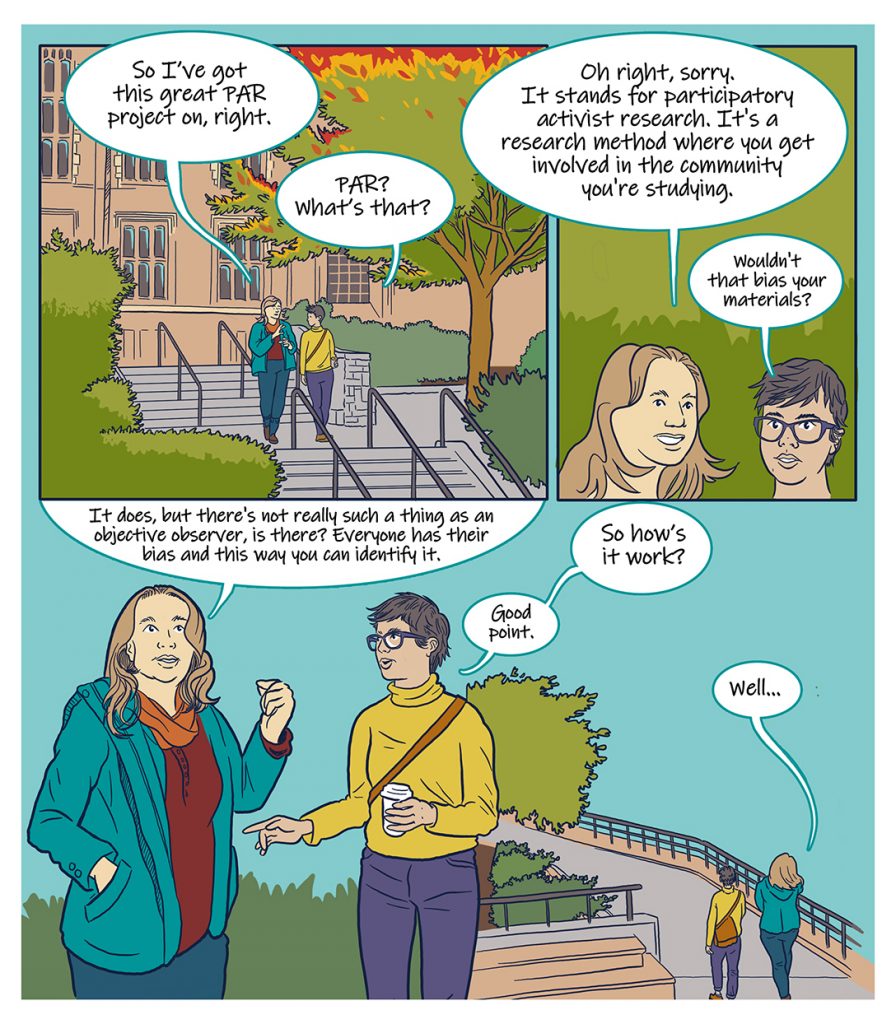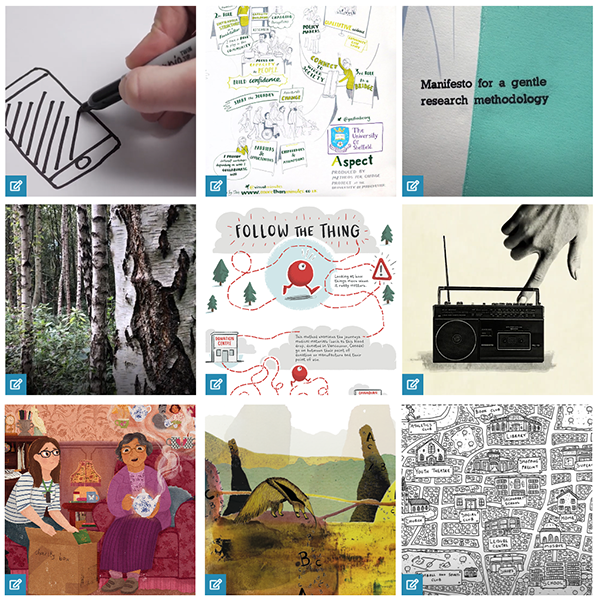Against the backdrop of a global pandemic, and local and national lockdowns, the Methods for Change project has been growing it’s membership and collaboration and has now entered a new phase of activity. The premise of the project, as we explained in this blog is to explore and enhance the transformational potential of social science methods within and outside of academia. To do this, we aim to share key methodological skills and techniques via written and creative resources, training and events, and to stimulate greater application of social science methods across industry, policy, third sector and academia alike. As early project activities, including interviewing, writing ‘how-to’ guides, and developing creative outputs now near completion, with the rest of this blog we reflect on where we have been, and where we plan to go next with Methods for Change.
The first phase of the project involved scoping, recruiting and interviewing a cohort of 30 academics with expertise in innovative and transformational social science methods. Interviewing across multiple Aspect members and disciplines, from architecture, to human geography, to social policy, with these interviews we developed innovative techniques to talk about methods. In a recent blog post we highlighted our ‘animals’ question, ‘if your method were an animal, what would it be?’, as one example used to prompt reflection around the key characteristics of different methodological approaches. While our animal question elicited different responses – with some participants relishing the opportunity and others postulating and less certain – it generated some fascinating discussions, demonstrating the value of thinking creatively when interviewing, particularly in a project that places creativity at its heart.
As a team, we have been in awe of all the academics involved, and their efforts to push the boundaries of what social science methods are perceived to be and do. On a practical level, it warrants mention that all the interviews have taken place online via video calls. As others have noted, online interviewing can present distinct challenges, but by using non-standard techniques and activities we have found online interviewing to be a space for transformational social science research. We are currently co-writing a paper about our interviewing techniques – watch this space!
The second phase of the project involved the translation of these collaborations and interviews into a set of resources. This includes a co-authored e-book, containing detailed how-to guides for 30 variously wonderful social science methodologies. With each guide co-authored by a member of the Methods for Change team, the collection represents a unique insight into a diverse array of methods. Guides devoted to an exciting range of methods, including Participatory Mapping, Follow the Thing and Oral and Histories and Futures have already been released, with more coming soon. So, keep your eyes peeled!
To complement the how-to guides, we have been working closely with our collaborators and a range of designers and artists to develop creative outputs to accompany each guide. To date, this includes hand-printed pamphlets, animations, short films, illustrated stories, comics, posters and more. In some cases, our academics used this opportunity to work with a designer or artist they had previously collaborated with, and so the project enabled them to strengthen these relationships. For others, the Methods for Change project provided an opportunity to seek out new creative collaborations. Each of these creative pieces aims to give a flavour of the method profiled in the how-to guide, communicated in a fun, engaging format. More creative outputs will be released throughout April 2021, but for now, below are some examples from our collaborators:


The next phase of the project will see the Methods for Change team holding a range of dedicated discussions with representatives from industry, policy and the third and public sectors. Seeking to understand how different organisations use social science methods, as well as the challenges to using these methods and potential training needs, with these discussions we hope to understand further the role of transformative social sciences outside of academia. Moreover, these discussions will inform how we communicate our project findings and resources, future follow-on work, and will help shape a co-authored think-piece to be written in the coming months.
Last, but by no means least, we are also organising a Methods for Change Showcase on 12 May 2021 10am – 3pm BST, an event to communicate and share our learnings and resources. Alongside targeted training and networking events for ECRs and PGRs, we will also host a range of panels with colleagues from across government, business and the third sector. In these panels we will explore how social science methods create transformative change for communities, the natural environment, and to address socio-economic inequalities, as well as thinking about how research can be communicated in creative ways. The event will be free to attend and will take place online, aiming to attract those working with social science methods, or interested to find out more, across sectors. Attendees will learn about our project, meet some of our collaborators, and will be some of the first to access our written and creative outputs. If you are interested in participating or have ideas about something you would like to learn more about regarding transformative social science methods, please get in touch with us at methodsforchange@manchester.ac.uk .




